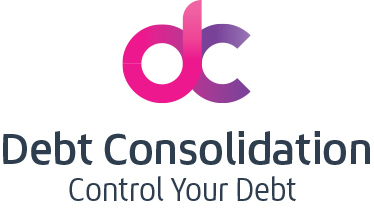Debt consolidation cannot erase your past debt management mistakes. But, it can help you start anew. Here are tips to help you achieve financial freedom using debt consolidation.
Acknowledge that you need a debt solution
Does having multiple debts bother you? Are you tired of keeping up with different payment schedules? Before you can implement a debt management strategy, you have to see the need first. If you no longer want to worry about having multiple debts, you have to follow a plan to help you pay off your loans. When you consolidate your debts, you also have to make certain sacrifices because you have to make do with whatever is left on your monthly budget after your monthly payment. The new payment schedule would affect the way you live and you have to make ways to deal with financial emergencies and your daily needs so that you will not be forced to use the money allotted for your monthly payments on them.
Know your financial capacity to repay the new loan
How much can you afford to pay each month? Before you start looking for consolidation options, it would really help if you evaluate your finances first. How is your cash flow? If you’re running a business, check whether you have a positive or negative cash flow each month. If you receive less than the amount you need to pay off your debt and at the same time to meet your personal needs, it would be useful to look for ways to increase your income. Otherwise, you will end up getting into debt once again.
Your income must allow you to make your monthly payment and at the same time meet your daily needs. It would also help if you would have spare money to put into your investment vehicles and emergency fund.
Know how much you owe
Do you have a copy of your most recent credit file? If not, it is time to ask for your free copies from the three major credit reporting agencies in the country.
Consolidation is all about reorganizing your financial obligations. It is merely a financial solution to manage multiple debts by rolling them into one new loan. Instead of making several payments each month on multiple creditors, you only have to make one payment. The overall interest rate would be lower, compared to all your debts combined. So, aside from the fact that you longer have to keep up with many due dates, there would only be one payment to make each month.
Reduce the monthly payments by opting for a longer loan term. If you cannot afford to make the payments each month, why not opt for a longer period? By stretching it for a few more months or years, you can reduce your payment by at least 25 percent.
Let’s say for example, you are paying a total of $2000 each month on your current debts which are payable within 5 years. You decided to roll them into one by getting a consolidation loan that only requires you to pay $1500 each month for the same period. But, if you have a low income and it would be difficult for you to meet the $1500 payment each month, you can ask the lender if they could stretch it to another year to lower the payment into $1250 each month.
Calculate the overall cost of the consolidation loan
Many loan consolidation companies advertise low monthly payments, but if you compute the overall cost of getting a debt, you may be surprised how little you amount can save by getting it. Check for the hidden fees and charges that may cost you more than what you bargained for. Don’t just rely on the interest rates, check the repayment period. If the new loan requires you to pay $1000 each month for 5 years, look for loan products that ask for the same monthly payment on a shorter period. At the same time, some lenders seem to offer the lowest monthly payment only to bombard you with high interests and fees along the way.
Create a spending plan
Before you apply for a loan to consolidate your debt it is important to create a budget that you can follow. There are so many reasons why you struggle with debts, and maybe one of them is the fact that you cannot keep up with your budget—or you didn’t have one. It is not difficult to create a spending plan, but it takes work—not only to create spreadsheet of your assets and liabilities and how much you make each month; but to actually stick to the allowance you give yourself. For example, if you used to spend $20% of your income on entertainment, maybe you have to reduce it to 5% this time. Or, you may have to let go of it for a while until you find a new source of income.

